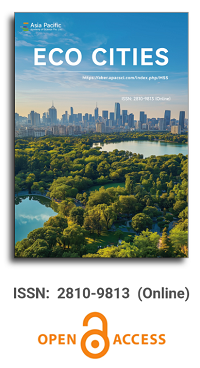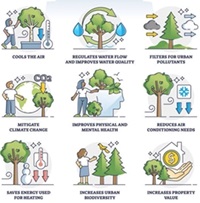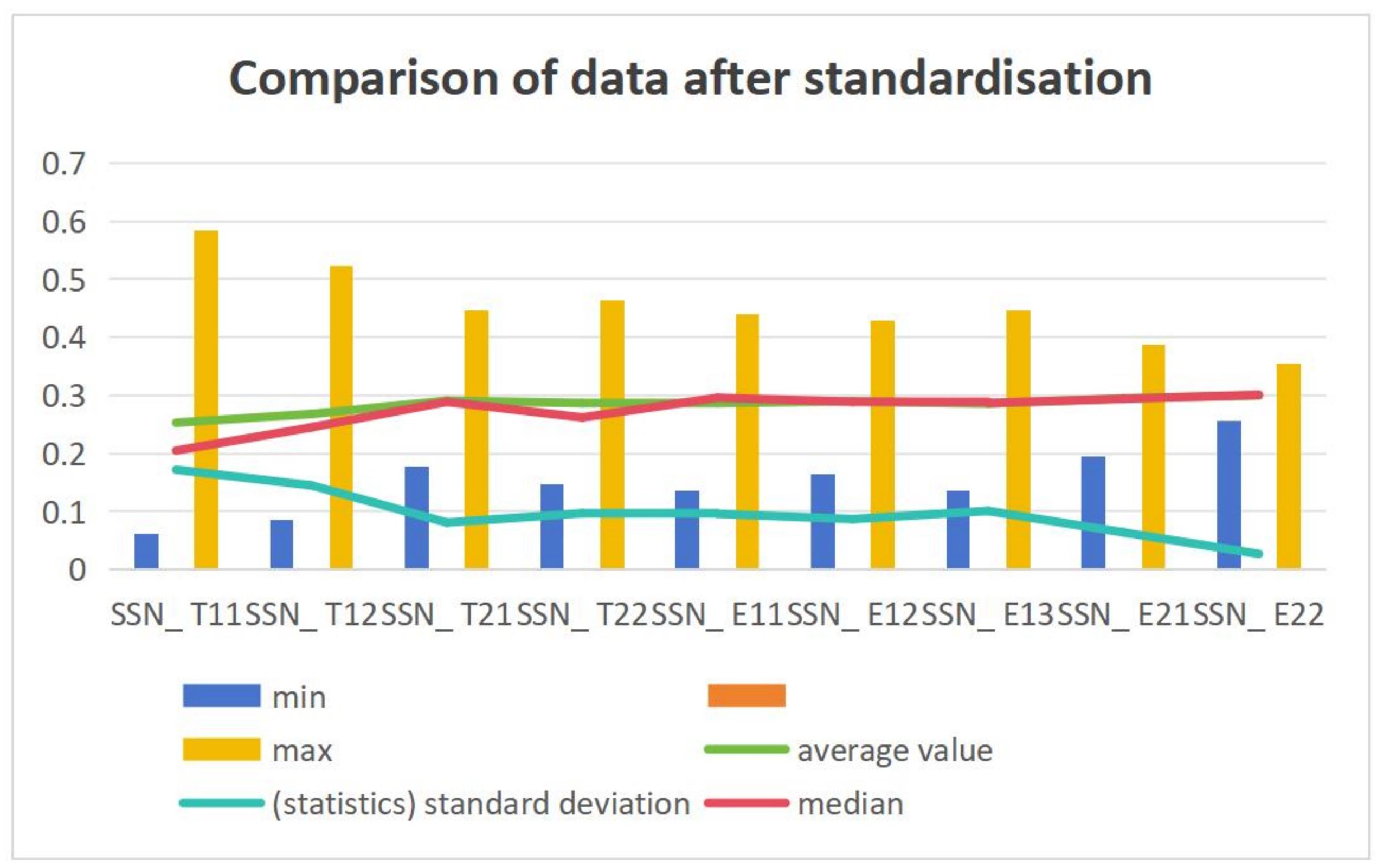


Research progress of eco city evaluation
Vol 3, Issue 2, 2022
Download PDF
Abstract
Building an ecological city is the main way to implement the “five in one” overall layout and important content to promote the construction of ecological civilization. The establishment of an ecocity evaluation system is particularly necessary for the construction of ecocity. This paper comprehensively combs the research literature on ecocity evaluation, analyzes the relevant literature from three aspects: evaluation method, evaluation dimension, and evaluation index system, and puts forward suggestions on the existing ecocity evaluation methods.
Keywords
References
- Ma S, Wang R. Social economic natural complex ecosystem. Journal of ecology 1984; 4(1): 3–11.
- Gao C, Gao G, Zhang X. Evaluation of Zhengzhou eco city construction based on P-S-R model. Regional Research and Development 2013; 32(2): 79–83.
- Shao C, Ju M. Research on low carbon city index system based on DPSIR model. Ecological Economy 2010; (10): 95–99.
- Zhu J, Tang Z, Liu X, et al. Low carbon source based evaluation model of Jinan City. Urban Issues 2012; (12): 42–47.
- Yi P, Li X, Zhou Y, et al. Screening model and application of eco city evaluation index. Journal of Northeast University 2017; 38(8): 1211–1216.
- Wang X, Huang Y, Yang L, et al. Study on evaluation index system of urban green development—Taking Guangzhou as an example. Research on Science and Technology Management 2012; 32(17): 55–59.
- Zhang J, Luo J. Evaluation of Wuhan eco city construction based on entropy weight method. Resource Development and Market 2011; 27(10): 887–889.
- Zhu H, Lei G, Wu X, et al. Construction of low carbon eco city index system from a multidimensional perspective—Taking Dongying City as an example. Modern Urban Research 2012; (12): 87–93.
- Lian Y. Urban value and low carbon city evaluation index system. Urban Issues 2012; (1): 15–21.
- Wen Q, Liu Y, Yan J. Study on evaluation index system of ecological water-saving city. Resources and Environment in Arid Areas 2007; 21(10): 34–38.
- Ning S, He B. Study on the evaluation of the construction process of Urumqi ecological city. China’s Population, Resources and Environment 2011; 21(s2): 78–81.
- Wu Q, Wang R, Li H, et al. Eco city index system and evaluation method. Journal of Ecology, 2005, 1(8): 2090–2095.
- Liu Z, Jiang Z. Discussion on construction standards and evaluation index system of modern ecological city. Science of Science and Management of Science and Technology 2001; 22(4): 61–63.
- Tan Q. Construction and Empirical Study of low carbon city evaluation index system—Taking the dynamic comparison between Nanjing and Shanghai as an example. Ecological Economy 2011; (12): 81–84.
- Fu L, He L. Research on Evaluation of low carbon ecological city based on grey correlation analysis. Journal of Xiangtan University 2013; 37(3): 31–35.
- Hua J, Ren J. Research on low carbon city evaluation based on ANP. Science, Technology and Economy 2011; 24(6): 101–105.
- Cheng J, Feng F. Research on urban low carbon development evaluation system: A case study of Zhejiang Province. Research on Science and Technology Management 2015; 35(9): 238–243.
- Li Y, Xian Y, Yin C. Research on evaluation method and model of low carbon city development—Taking four municipalities directly under the central government as an example. Ecological Economy 2017; 33(12): 46–51.
- Zhong Y, Shi S, Luo F, et al. Design and empirical study on evaluation system of Hangzhou low carbon ecological city. Journal of Central South University of Forestry Science and Technology 2014; (6): 117–123.
- Wang L, Zhou Y, Zhang Y. Evaluation and obstacle analysis of low carbon city development level based on entropy weight TOPSIS method—Taking Tianjin as an example. Research on Science and Technology Management 2017; 37(17): 239–245.
- Zhao G, Hao W. Low carbon ecological city: Research on three-dimensional objective comprehensive evaluation method. Urban Development Research 2011; (6): 31–36.
- Wang Y, Shi Y, Chen T. Comparison and innovation of eco city evaluation system. Urban Issues 2007 (12): 17–21.
- Song D, Xiao D, Shen Y. Evaluation of eco city construction in coastal areas of China. Advances in Geographical Sciences 2004; 23(4): 80–86.
- Xin L. Construction of low carbon city evaluation index system. Statistics and Decision Making 2011; (7): 78–80.
- Zhu J, Liu X, Yao N. Research progress of low carbon city evaluation index system. Economic Research Reference 2013; (14): 18–28.
- Fu J, Zhuang G, Gao Q. Concept identification and evaluation index system construction of low carbon economy. China Population, Resources and Environment 2010; 20(8): 38–43.
- Liu Q. Review on the concept and evaluation index system of domestic low-carbon city. Journal of Nanjing Normal University 2014; 37(2): 1–6.
- Wang Y, Chen M, Chen Z. Construction and analysis of index system for regulatory detailed planning of low-carbon ecological city. Urban Development Research 2014; 21(1): 46–53.
- Song W. Evaluation of low-carbon development in 28 cities along the Yangtze River. Regional Research and Development 2012; 31(1): 139–144.
- Li H, Yu L. Study on the construction of ecological city evaluation index system in China. Urban Development Research 2011; 18(7): 81–86.
Supporting Agencies
Copyright (c) 2022 Xuefeng Yang, Yi Zhou
License URL: https://creativecommons.org/licenses/by/4.0

This site is licensed under a Creative Commons Attribution 4.0 International License (CC BY 4.0).

Chinese Academy of Sciences, China
Indexing & Archiving
Asia Pacific Academy of Science Pte. Ltd. (APACSCI) specializes in international journal publishing. APACSCI adopts the open access publishing model and provides an important communication bridge for academic groups whose interest fields include engineering, technology, medicine, computer, mathematics, agriculture and forestry, and environment.



.jpg)

.jpg)



